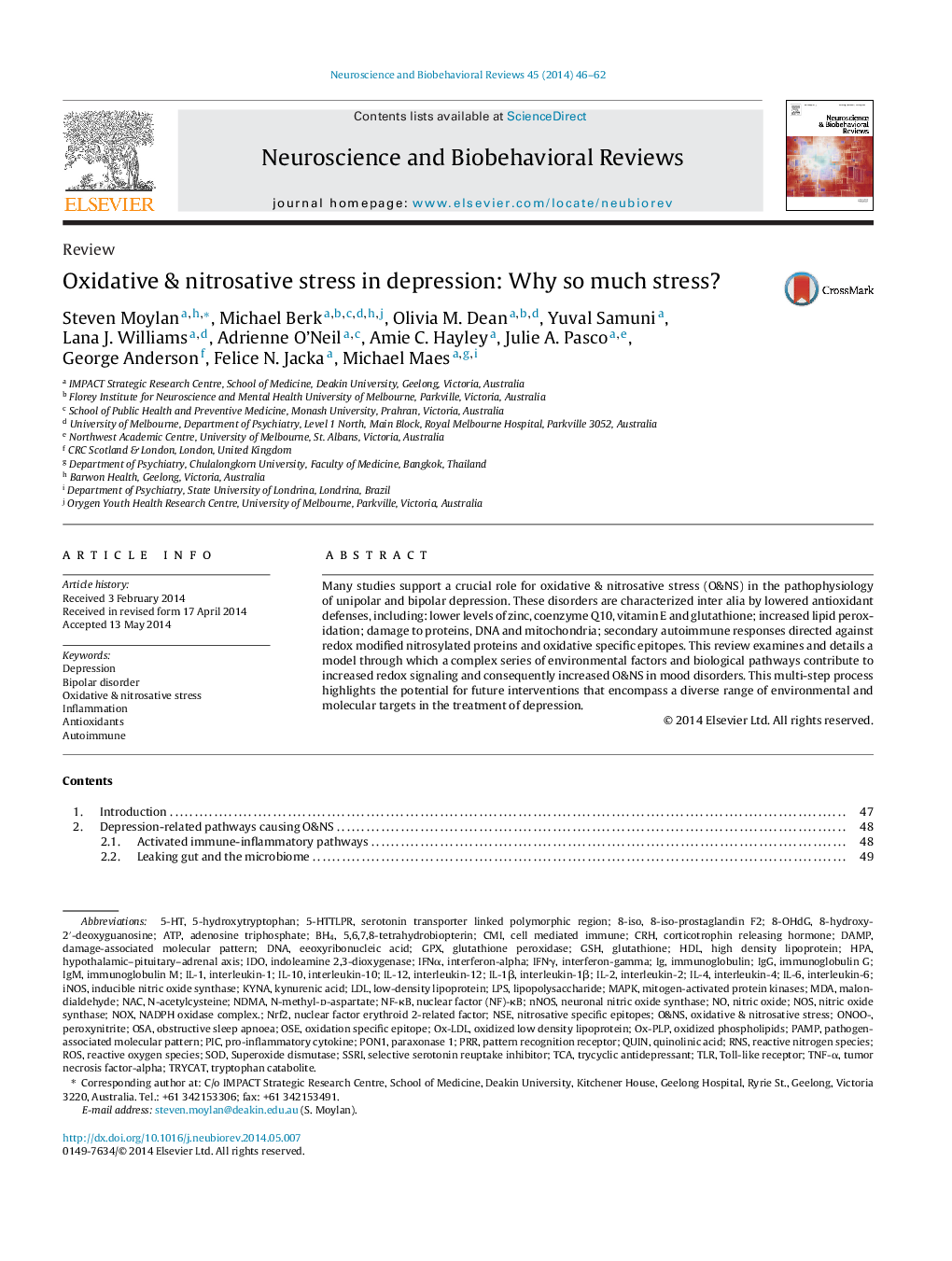| Article ID | Journal | Published Year | Pages | File Type |
|---|---|---|---|---|
| 7303906 | Neuroscience & Biobehavioral Reviews | 2014 | 17 Pages |
Abstract
Many studies support a crucial role for oxidative & nitrosative stress (O&NS) in the pathophysiology of unipolar and bipolar depression. These disorders are characterized inter alia by lowered antioxidant defenses, including: lower levels of zinc, coenzyme Q10, vitamin E and glutathione; increased lipid peroxidation; damage to proteins, DNA and mitochondria; secondary autoimmune responses directed against redox modified nitrosylated proteins and oxidative specific epitopes. This review examines and details a model through which a complex series of environmental factors and biological pathways contribute to increased redox signaling and consequently increased O&NS in mood disorders. This multi-step process highlights the potential for future interventions that encompass a diverse range of environmental and molecular targets in the treatment of depression.
Keywords
5-hydroxytryptophanGSHNACGPXDAMPNOSiNOS8-OHdGIL-1βIL-10N-methyl-d-aspartatenNOSIL-25-HTCMI5-HTTLPRIDOBH4serotonin transporter linked polymorphic region8-ISOIFNγIL-12IFNαMDAIgMnuclear factor (NF)-κBNF-κBCRHNSEIL-4HDLIgGIL-1IL-6LPSnDMANrf25,6,7,8-tetrahydrobiopterin8-hydroxy-2′-deoxyguanosineDNAMAPKN-acetylcysteineNOxAdenosine TriphosphateATPkynurenic aciddamage-associated molecular patternimmunoglobulin immunoglobulin Gimmunoglobulin Minterferon-alphainterferon-gammainterleukin-12interleukin-4Interleukin-10interleukin-6interleukin-1Interleukin-1βInterleukin-2indoleamine 2,3-dioxygenaseinducible nitric oxide synthaseneuronal nitric oxide synthasenuclear factor erythroid 2-related factorhigh density lipoproteinLow-density lipoproteinLDLlipopolysaccharidemalondialdehydehypothalamic–pituitary–adrenal axisHPANitric oxidenitric oxide synthasecorticotrophin releasing hormoneKYNAmitogen-activated protein kinasesGlutathioneglutathione peroxidase
Related Topics
Life Sciences
Neuroscience
Behavioral Neuroscience
Authors
Steven Moylan, Michael Berk, Olivia M. Dean, Yuval Samuni, Lana J. Williams, Adrienne O'Neil, Amie C. Hayley, Julie A. Pasco, George Anderson, Felice N. Jacka, Michael Maes,
